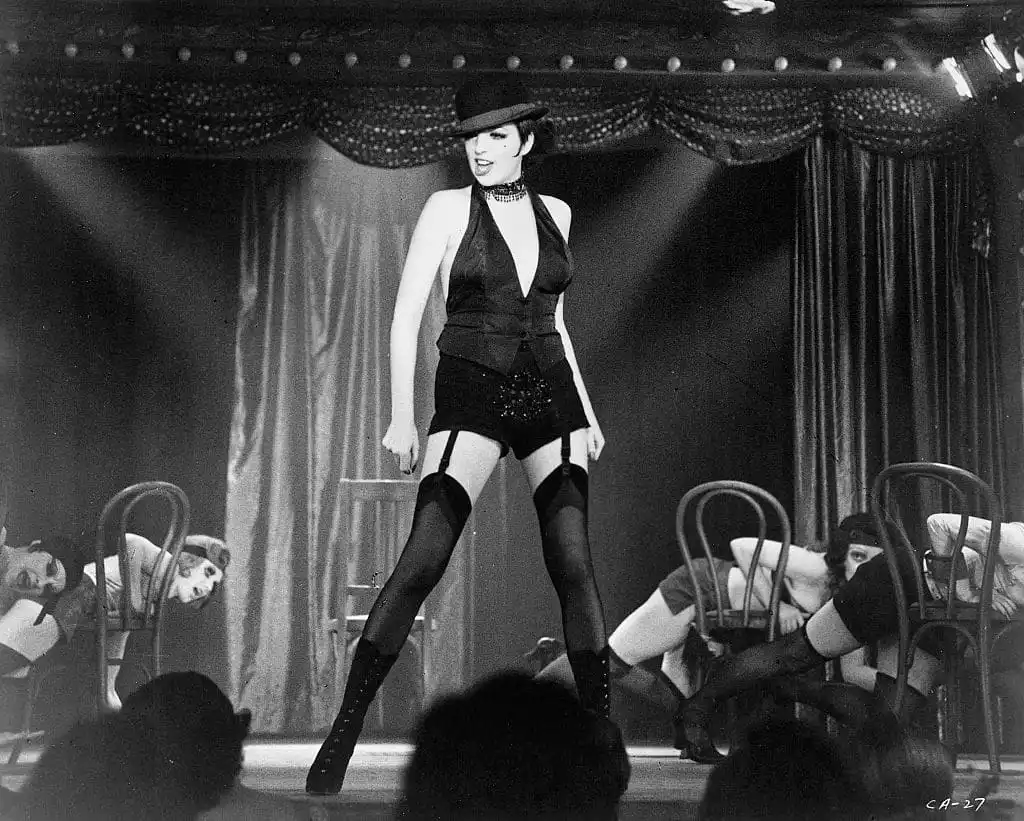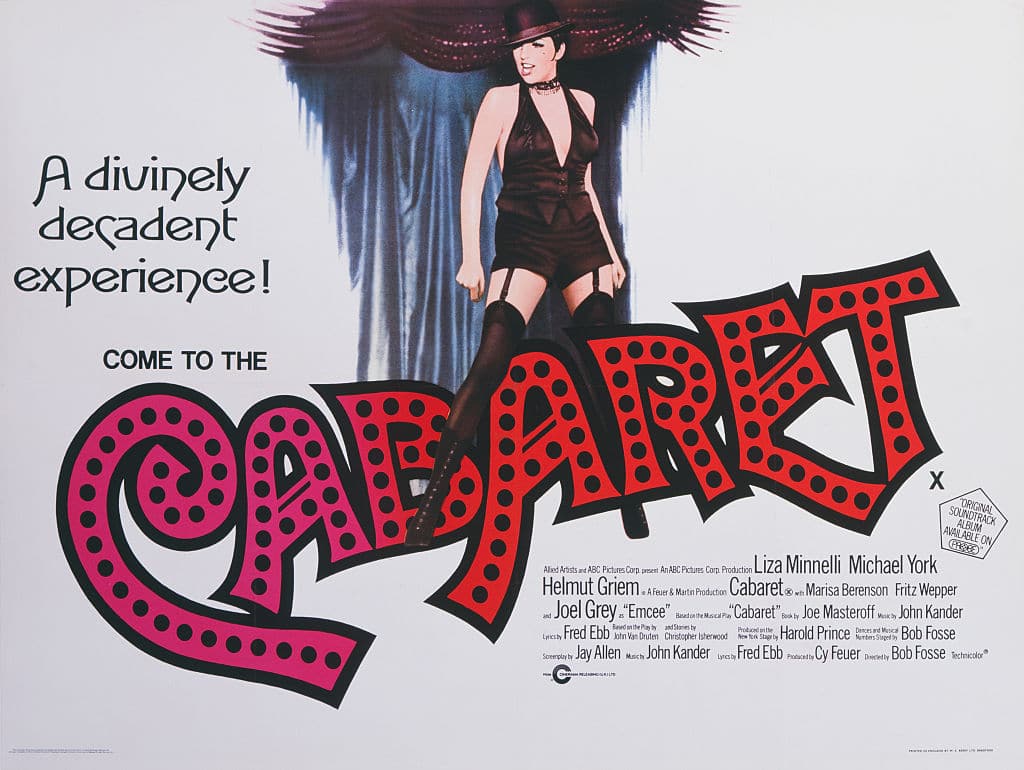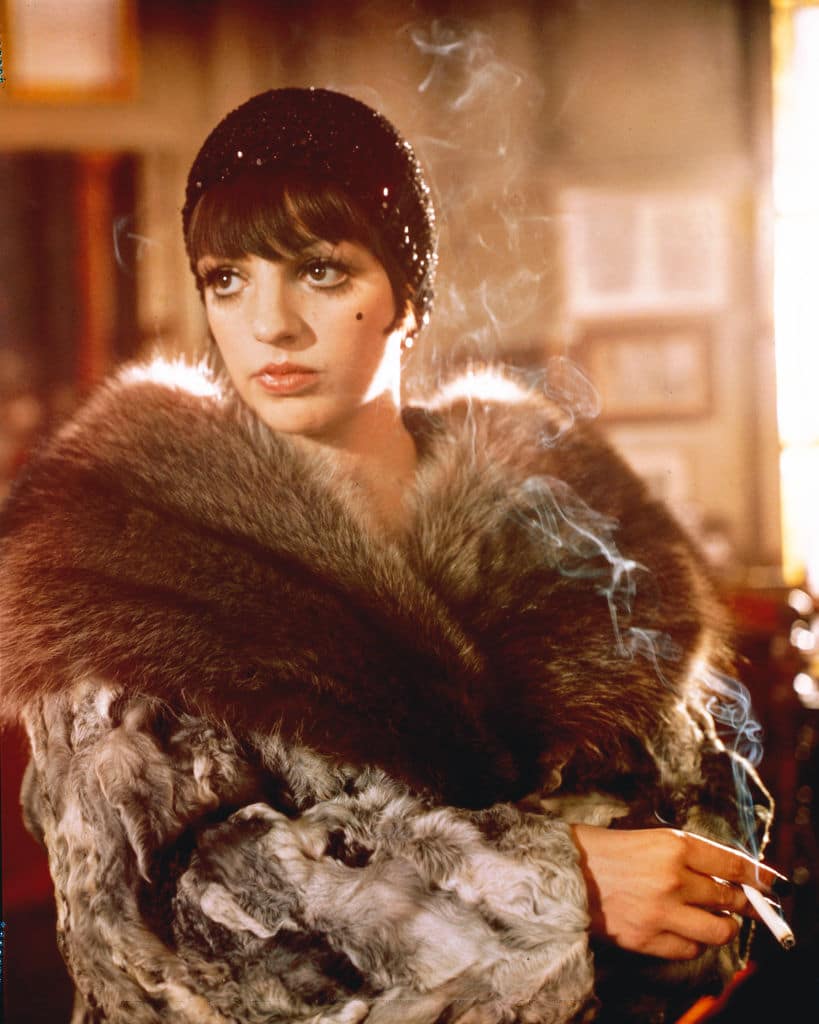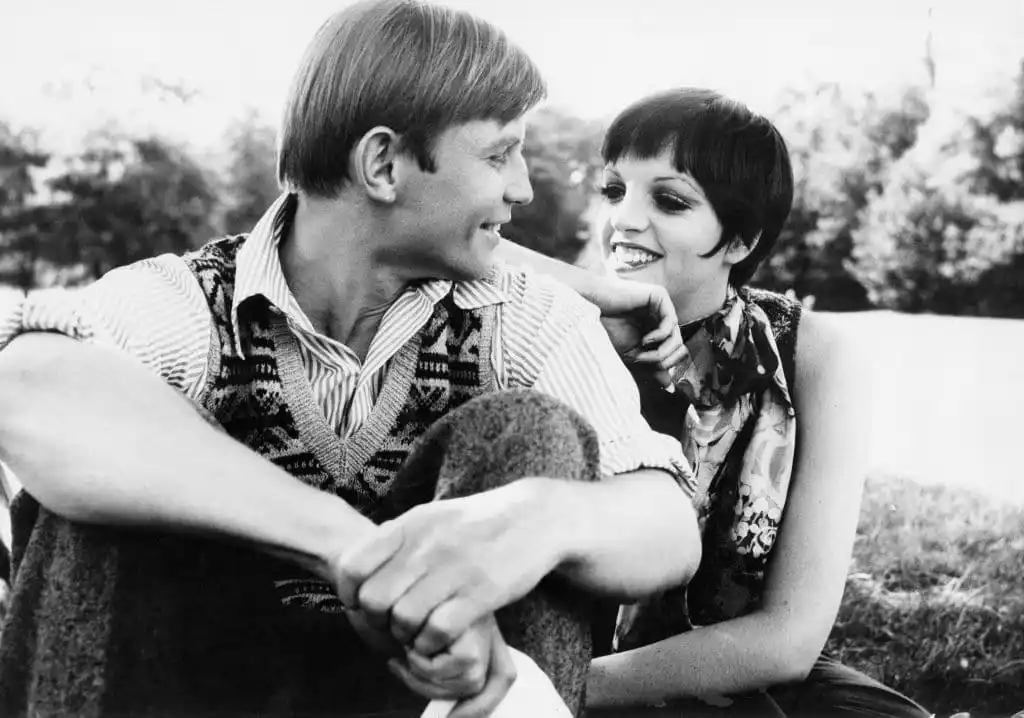13 incredible Cabaret facts as the game-changing Liza Minnelli film turns 50
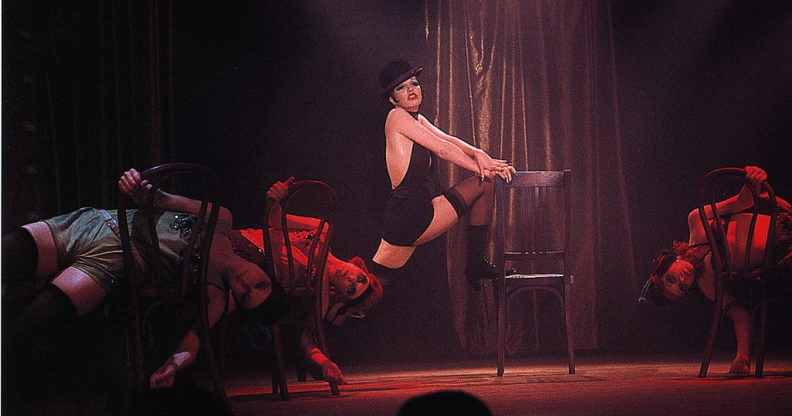
Liza Minnelli in Cabaret (GAB Archive/Redferns)
When Liza Minnelli got up on stage at the 1973 Academy Awards to accept the Oscar for Best Actress for her role in Cabaret, the first thing she did was laugh.
Her reaction wasn’t all that surprising – winning Hollywood’s highest accolade at the age of 27, especially when her mother Judy Garland had never been given such an honour, must have come as a shock.
The critical response at the time was unanimous: Liza Minnelli was a sensation. But it’s enormous box office success was somewhat unexpected given its exploration of themes many people at that time would have seen as “immoral”.
Cabaret’s reluctance to shy away from the harsher realities of life could be one of the reasons it became such a success. For queer audiences, seeing bisexuality depicted and explored in a meaningful, compassionate way quickly cemented its status as a classic.
To celebrate 50 years of Cabaret, we take a look at 13 facts about the film you might not have known – from the story’s surprising origins to its unique claim to fame in Oscars history.
1. Cabaret had a long gestation before it reached the screen
Cabaret is loosely based on novelist Christopher Isherwood’s time living in Weimer Germany.
At the very end of the 1920s, Isherwood moved to Berlin, where he felt he could explore and express himself more fully as a gay man. There, he ended up living with Jean Ross, a British cabaret singer and aspiring actress.
By the time the Nazi Party was on the brink of seizing power in the 1932 elections, Isherwood and his English contemporaries had fled Berlin. He later wrote a short story based on his relationship with Ross, titled “Sally Bowles”, and his 1939 novel Goodbye to Berlin also focused on that period in his life.
Isherwood’s stories were later adapted into the 1951 Broadway play I Am a Camera, and that in turn was adapted into the 1966 Broadway musical Cabaret. Finally, six years later, the story made it to the screen.
2. The film adaptation cut many of the musical’s songs
When a Broadway musical is adapted into a film, it’ll often look more or less the same – but Cabaret was a different story.
In fact, many of the songs in the stage version were cut from the film. Instead, the focus lies on the Kit Kat Club, with all but one of the film’s songs performed from the stage. That was a unique departure for the time.
Songwriters John Kander and Fred Ebb wrote new songs for the film version too, including “Money Money” and “Mein Herr”. “Maybe This Time” was also a new addition for the film, but it wasn’t written specifically for the project.
Some of the Broadway musical’s songs can be heard playing in the background at various points in the film.
3. ‘Maybe This Time’ was included in the film on Minnelli’s request
Liza Minnelli was a big fan of the song “Maybe This Time”, which had been written by John Kander and Fred Ebb in 1964 specifically for the actress Kaye Ballard – and it was thanks to her the song ended up making the cut.
“Maybe This Time” wasn’t part of the original Broadway musical, but Minnelli loved it so much that she urged Kander and Ebb to include it in the film. She had performed it live in the past so she already had a history with the track.
Cabaret’s director, Bob Fosse, initially wasn’t a fan of the song, but he later warmed to it when they decided on the staging.
4. Cabaret won eight Oscars – but it missed out on the biggest award of the night
In addition to Liza Minnelli’s win for Best Actress at the 1973 Oscars, Bob Fosse was named Best Director, Joel Gray won Best Supporting Actor, and the film was recognised for its cinematography, art direction, editing, score and sound.
In total, Cabaret walked away with eight Oscars – but it missed out on Best Picture to The Godfather. Fifty years on, it still holds the record for having won the most Oscars without taking home the top prize.
5. Liza Minnelli invented her own unique look for Cabaret
You’d be forgiven for thinking that Liza Minnelli’s unique hair style and make-up were the work of an entire team of people – but the actress actually came up with the look herself.
Minnelli later recalled how she went to her father, the acclaimed film director Vincente Minnelli, for advice on how she should style herself for the film. She had originally planned to go blonde for the role, but her father disagreed.
“I went to my father and asked him, ‘What can you tell me about 1930s glamour? Should I be emulating Marlene Dietrich or something?’ And he said ‘No, study everything you can about Louise Brooks.'”
Speaking at an event in 2012, Minnelli revealed how she came up with Sally Bowles’ iconic eyelashes.
“I was driving down La Cienega [in Los Angeles], and I saw this eyelash shop,” she explained. “I went in and said, ‘Hi there. Whaddya got? I’m making this character and I want her to be extraordinary!’
She also revealed that she cut her hair into Sally’s unique shape with the help of her co-star Joel Gray.
6. Liza Minnelli was passed over for the role of Sally Bowles on Broadway
Liza Minnelli originally auditioned to play Sally in the Broadway production of Cabaret, but she was reportedly considered too inexperienced for the part – despite the fact that she had already won a Tony Award for Best Actress in a Musical.
When she got word producers had decided to go in a different direction, she wasn’t too phased, as she explained in 2012.
“For some reason, I thought right away, ‘That’s OK. I’ll do the movie.’ I was young and I just knew it.”
7. She fought hard to win the role in the film
Liza Minnelli was working on a show in Paris when one of the film’s producers flew out to meet her to talk about casting her in the film.
Minnelli later recounted how she met with the producer, but she still wasn’t sure she had convinced him. That’s when she decided to invite him to her show, where she performed “Cabaret”.
“And that’s when he said, ‘You got it.’ That’s when I got it,” she later revealed.
8. Minnelli didn’t want the film to water down its exploration of sexuality
Cabaret immediately made waves over Michael York’s character Brian, who has sexual relationships with both Sally and Maximilian – and Minnelli was determined that the dynamic shouldn’t be changed for the big screen.
When she met with the film’s producer, she was quick to explain why she thought Brian’s sexuality shouldn’t be changed.
The producer apparently “loved” her ideas about the production, which undoubtedly helped her win the part.
9. Joel Grey wouldn’t have been in the film if director Bob Fosse had his way
Joel Gray won an Oscar for his performance as the Master of Ceremonies in Cabaret, but he almost didn’t make the cut at all – in fact, Bob Fosse did his best to find someone else.
Grey famously played the same role in the Broadway version of Cabaret, so he seemed like the perfect fit. He had been cast to start in the film before Fosse was ever attached.
“You could say that we had history,” Grey explained in 2012. “The truth of the matter is that Bob did not want me in the movie, and I was heartbroken. He looked at every other possible actor.
“I understood it in a certain respect, because he wanted to create this from the very beginning with all new actors. And, honestly, I think that he wanted to play the part himself. I’m serious. He was a great performer, and he never really got to do enough of that, so the fact that I was shoved down his throat caused a really interesting challenge for each of us.”
10. The woman who inspired Sally Bowles was hounded by the media after the film came out
Jean Ross, the woman who inspired Sally Bowles, died in 1973, just one year after the film came out. Sadly, the final months of her life saw her being hounded by cruel journalists who were only interested in her sex life.
Speaking before her death, Ross said journalists always claimed to want to know “about Berlin in the ’30s” but had little interest in finding out “about the unemployment or the poverty or the Nazis marching through the streets. All they want to know is how many men I went to bed with.”
11. Christopher Isherwood wasn’t happy with the way Cabaret glamorised 1930s Berlin
Isherwood felt that the film inappropriately glamourised 1930s Berlin, which he said was actually a very different place to how it appeared in Cabaret. His friends also spoke candidly about their disappointment with the way the film depicted their experiences.
Stephen Spender, a poet who was also a friend of Isherwood’s, said there was “not a single meal or club in the movie Cabaret that Christopher and I could have afforded”.
Furthermore, Ross said the film’s depiction of Berlin was “quite, quite different” from the grim reality.
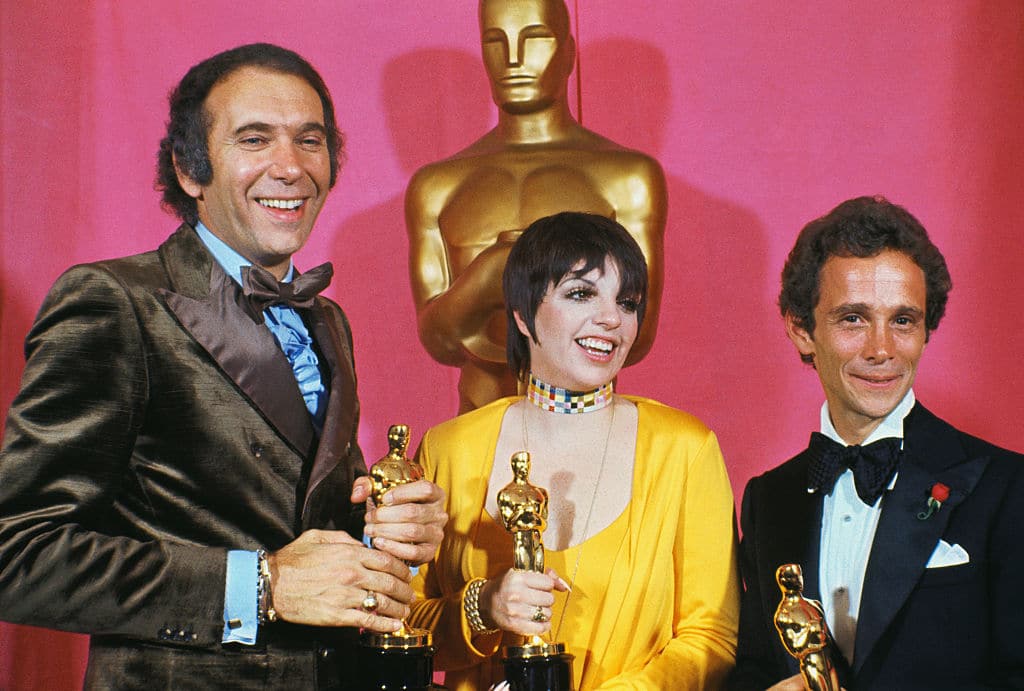
The Godfather producer Al Ruddy with Liza Minnelli (best actress for Cabaret and Joel Gray, best supporting actor for Cabaret. (Getty)
12. Jeremy Irons and Tim Curry were considered for the part of Brian
It’s hard to imagine anyone other than Michael York playing the role of Brian, but producers reportedly also considered Jeremy Irons, Tim Curry and Timothy Dalton for the role.
Thankfully, the part ultimately went to York, and the rest is history.
13. Christopher Isherwood thought Cabaret turned queerness into a joke
Cabaret is widely regarded as a classic of queer cinema today for its exploration of Brian’s bisexuality – but Isherwood wasn’t a fan of how the film treated the subject.
“In the film of Cabaret, the male lead is called Brian Roberts. He is a bisexual Englishman; he has an affair with Sally and, later, with one of Sally’s lovers, a German baron… Brian’s homosexual tendency is treated as an indecent but comic weakness to be snickered at, like bed-wetting,” Isherwood said.
